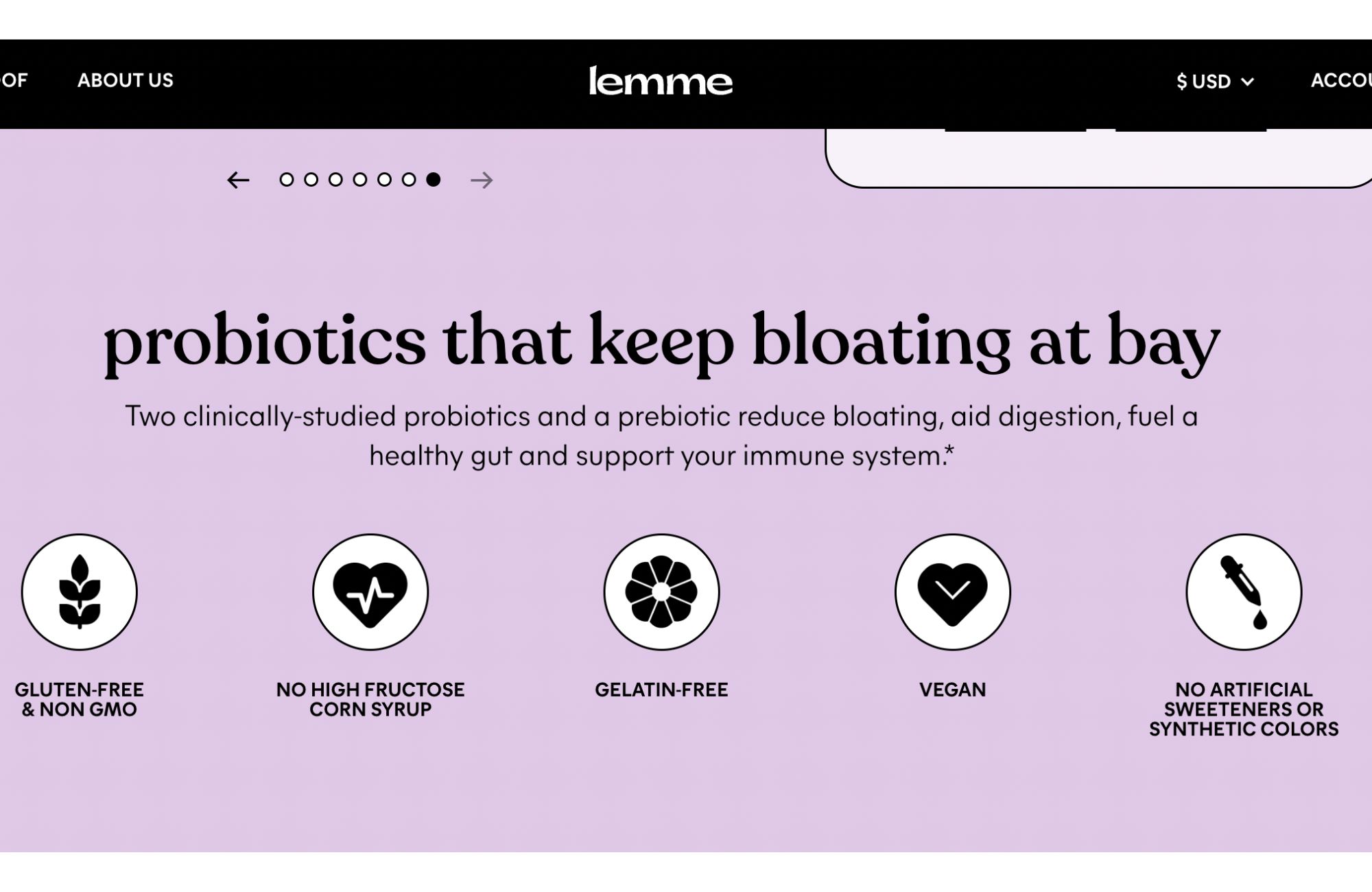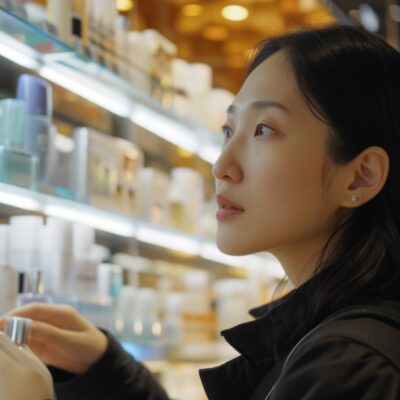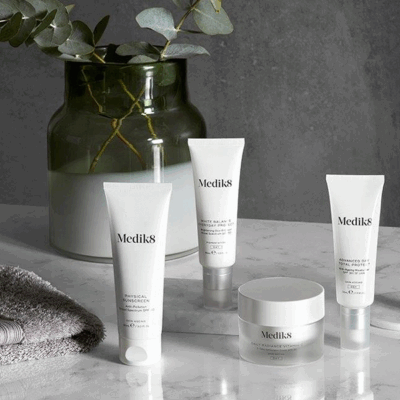
Is The Wellness Industry Backsliding On Body Positivity?
Gwyneth Paltrow, perhaps today’s biggest celebrity wellness influencer, recently received backlash for stating on the podcast “The Art of Being Well” that she eats only two meals a day: “bone broth for lunch a lot of the days” and then, after exercising and sweating in the sauna, a paleo dinner containing “lots of vegetables.”
TikTok and Instagram commenters were quick to point out that this diet doesn’t sound like it provides adequate calories or nutrition; one wrote “wellness is the new ‘how do u stay thin.’” Some used the phrase “almond mom,” referencing a 2013 episode of “The Real Housewives of Beverly Hills” where Yolanda Hadid advises her daughter Gigi to “have a couple of almonds and chew them really well” when she is feeling weak from a fast.
Since the airing of the “almond mom” episode, popular culture has ostensibly gotten more body positive, with plus-size models on the rise, beauty products made for larger people, and women’s publications emphasizing overall health over thinness and condemning diets.
Yet despite this, there are lots of products are still marketed as gluten-free and grain-free, fat-burning spa treatments like CoolSculpting and CryoSlimming, cellulite targeting Resonic and EmTone, and Instagram ads for weight loss apps like Noom. Diabetes medicine Ozempic has made its way from Hollywood’s inner-circle doctors to mainstream “wellness” outposts due to its staggering weight loss side effects. A recent survey suggests that many people, even those enmeshed in natural products, are open to trying weight loss drugs.
Paltrow’s is hardly the only extreme celebrity diet plan to make news in recent times. Kim Kardashian, who has been celebrated as an example of a curvier celebrity, lost 21 pounds to fit into a dress that belonged to Marylin Monroe last year for the Met Gala and bragged about keeping it off after the fact. Recently, Hilary Duff echoed Paltrow’s comments, saying that she will wake up hungry and “just drink coffee in the morning and starve off my hunger.”
Part of it is that the thin ideal and diet culture that’s prevailed since the 1990s has never really gone away. On top of that, the past decade or so has seen a newfound obsession with “clean eating,” fueled by Instagram influencers promoting “healthy recipes” and fads like the keto and paleo diet.
Paltrow is hardly the only celebrity playing in the healthy eating meets wellness space. Kate Hudson’s nutritional powder company In Bloom sells skin, hair and nail boosters along with”green” protein and digestion aids. Kourtney Kardashian’s supplement brand Lemme includes debloat gummies and her lifestyle site Poosh, includes articles on burning calories and avoiding weight gain.
“I’m seeing ads for weight loss products again—something I personally haven’t seen in a long time,” says Christy Yip, holistic nutritionist, body empowerment coach, and host of the podcast “The Sistriarchy Sessions.” “In the 2010s, the hourglass figure with full curves was the ideal beauty standard for women. Now in the 2020s, we have come full circle back to idealizing thinness.”
Has wellness culture become toxic?
“Unfortunately, many diets like intermittent fasting, keto, and even plant-based diets have gained traction as a one-size-fits-all with the overall goal of weight loss,” says Kelsey Lorencz, a dietician and nutrition advisor for Fin vs Fin. Some of these popular diets promoted as avenues to health actually constitute disordered eating, says Katherine Metzelaar, an anti-diet dietitian at Brave Space Nutrition.
Experts say they’ve seen an increase in orthorexia, a fixation on healthy eating that ultimately damages one’s physical and/or mental health. “Orthorexia is a relatively new type of eating disorder that has absolutely been fueled by social media influencers and celebrities over the past decade,” says Lorencz. “They’ve added an elitist feel to ‘healthy eating’ that includes overpriced ingredients, demonization of overall nutritious foods [like grains and dairy products] that are more affordable, and restrictive eating patterns in the name of ‘health.’”
Brands’ marketing in this area is often deceptive, claiming to promote health when really promoting weight loss. The app Noom, for instance, uses the tagline “stop dieting” on its website, yet it includes calorie counts, categorizes food as good and bad based on a color-coding system, and gives information about weight even to users who do not list weight loss as a goal—all “red flags,” according to dietitian Samantha Berkowitz.
A similar example is the app BODi, formerly called Beach Body, says Metzelaar. This brand recently changed its name to distance itself from its appearance-based connotations but still promotes weight loss through strenuous exercise plans, calorie counting, and before-and-after photos.
Lasta, an app that assists people with fasting programs, professes to be about “developing healthy and mindful eating habits,” according to the app’s nutrition consultant Barbara Kovalenko. However, there is a fine line between healthy eating habits geared toward weight loss and dieting. Intermittent fasting, for instance, “is glorified disordered eating and parallels behaviors of anorexia,” says Metzelaar. “Human bodies benefit most from getting food consistently, and getting enough carbs, fat and protein, neither of which these diets promote.”
Other brands like Lemme avoid ingredients like gluten and dairy that are harmful to some people, which is not a problem in of itself but can be when the brand’s messaging implies these ingredients are always bad, Berkowitz explains. Berkowitz has also seen brands and influencers talk about preventing bloating, which is often a normal part of digestion rather than something to avoid.

Do weight loss brands have any value?
Some brands insist that they are helping people by assisting them in losing weight or looking thinner. “Everyone should feel at ease in their own skin,” says Annabelle Baugh, founder of Cosmetic Surgery Advancements, a site with the tagline “be your most authentic self” that helps people find plastic surgeons for liposuction and tummy tucks. Baugh says she’s seen a jump in demand for liposuction in recent years.
“Body positivity is all about embracing your body,” she continues. “And that doesn’t mean we all have to desire the same body shape. If you’re content and healthy, it doesn’t matter your size or weight! But let’s also remember that nobody should be shamed for wanting a slimmer figure if it empowers them to live their best life confidently.”
This is a common argument: Helping people attain their body goals can boost their confidence. However, Metzelaar has seen this backfire. “If you don’t get to the root of what is causing the poor body image, no amount of procedures tend to help,” she says. “I have worked with individuals who have had an array of body procedures, whole body lifts, breast augmentation, liposuction, and more, and they still felt horrible about their body.”
Other brands talk about optimizing weight for the purpose of health. Lauren Byington, cofounder of the cosmetics and supplement brand Heal Yes, says she sells some weight management products for “energy and health,” explaining, “Heal Yes! offers a collection of options that address weight management but not for the purpose of pushing weight loss as to obtain a societal ideal; rather, weight management and optimization of oneself are the goal.”
John Gardner, co-founder of the remote personal training platform Kickoff, says part of his goal is to help people struggling with health issues related to obesity. “One of the biggest reasons why wellness brands are focusing on promoting losing weight is because the U.S. is facing a huge issue with obesity,” he says. “Focusing on the positives of following a healthy lifestyle and the impact on health and functional daily activities [can help people] feel good about their achievements just by being able to walk to the grocery store or climb the stairs without losing breath.”
“If you don’t get to the root of what is causing the poor body image, no amount of procedures tend to help,” she says. “I have worked with individuals who have had an array of body procedures, whole body lifts, breast augmentation, liposuction, and more, and they still felt horrible about their body.”
Though some people may benefit from these kinds of approaches, Lorencz cautions against assuming you need a certain body type to be healthy. “While a way of eating may work for one person’s lifestyle and goals, that doesn’t translate into something that’s healthy for everyone,” she says. “And most importantly, weight loss doesn’t equal health or true wellness.”
Will wellness always be wrapped up in thinness?
Metzelaar doesn’t see the wellness industry changing any time soon. “Wellness culture and diet culture are inextricably linked. The wellness industry is inextricably connected to profit and capitalism. Meaning, if they see that something is going to make them more money, they will do it,” she says. “In order for the wellness industry to make strides forward, they will need to directly address that body size is not related to wellbeing and health—and to examine how their products and marketing are infused with weight bias and stigma.”
Still, while celebrities and brands may still be promoting thinness and diets overtly and not, the public’s reaction is encouraging. “The fact that so many people are calling these unattainable wellness trends out for what they are is a sign that we’re heading in the right direction,” says Lorencz. “Gwyneth’s ‘wellness’ routine received more backlash than applause, which is a major win.”
In addition, some brands feel it is possible to promote wellness without making it about weight loss or appearance — and are striving to do so. “We offer permission to our users to show up as they are, without any encouragement to change the way their body looks,” says Nina Clark, brand advocate for the workout app WeShape and host of the “WeShape” podcast. “No scales, no goal-setting outside of feeling good about themselves, whatever that means to them.”
“We have a long path ahead when it comes to completely reeducating the public about our society’s obsession with thinness and how many parts of their lives are touched by it,” says Clark. “However, something can be done! Just as we were taught to hate our bodies for how they look, we can also be taught to think differently about them.”
KEY TAKEAWAYS
- Despite the headway body positivity has made in recent years, celebrities like Gwyneth Paltrow continue to promote “wellness” routines that resemble dieting and weight loss programs.
- Experts feel that a number of companies claiming to promote wellness are also really promoting dieting and weight loss under a different name.
- Some brands claim that weight loss can be empowering, yet this goal is often tied up in societal norms around appearance.
- Other brands aim to help people work toward overall health without an emphasis on weight or calorie intake.
- Many believe the wellness industry will always be tied up with thinness, while others say that with awareness and conscious efforts to question beauty ideals, things can change.





Leave a Reply
You must be logged in to post a comment.